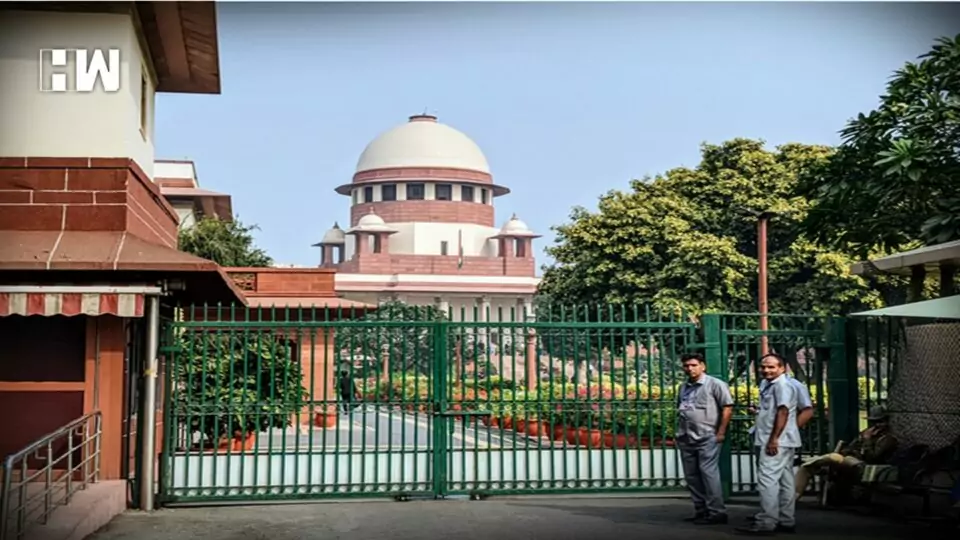SC said that if the state governments failed to file their responses their principal secretaries have to appear before the court and explain as to why they should not be proceeded with under the coercive arm of the law
New Delhi: The Supreme Court has asked West Bengal, Uttar Pradesh and several other states to file responses on issues relating to the implementation of Real Estate (Regulation and Development) Act within four weeks or their principal secretaries in charge of housing departments would have to make personal appearances before it.
A bench of Justices DY Chandrachud and Hima Kohli said that if the state governments failed to file their responses their principal secretaries have to appear before the court and explain as to why they should not be proceeded with under the coercive arm of the law. The apex court noted that despite a previous order dated August 12, requiring the states and Union Territories to file their responses with the Union Ministry of Housing and Urban Affairs by September 2, — Andhra Pradesh, Chhattisgarh, Gujarat, Jharkhand, Madhya Pradesh, Maharashtra, Manipur, Mizoram, Odisha, Uttar Pradesh, and West Bengal — have not submitted their responses.
“The States which have not filed their responses shall do so positively within a period of four weeks from today, failing which the Principal Secretaries of the State Government in the Ministry of Urban Development/Affairs shall personally remain present before this Court on the next date of hearing to explain as to why they should not be proceeded with under the coercive arm of the law,” the order of the top court stated.
Earlier, the apex court asked the chief secretaries of all the states and Union Territories to respond to the queries raised by the central government on the implementation of RERA Act, 2016 rules in their jurisdiction.
The order of the top court came while hearing a plea filed by advocate Ashwini Upadhyay seeking direction to the Centre to frame a model Builder-Buyer agreement and model Agent-Buyer agreement in order to infuse transparency, reduce fraud and restrain builders and promoters from indulging in arbitrary unfair and restrictive trade practices.
The plea sought protecting the rights and interests of customers.
Meanwhile, the central government has proposed to submit before the Supreme Court a model builder-buyer agreement with mandatory clauses that cannot be altered by the states or the UTs.
Additional Solicitor General Aishwarya Bhati and amicus curiae Devashish Bharuka submitted before the bench that the model agreement will have Part A which will have core clauses with the mandatory provisions of the Real Estate (Regulation and Development) Act 2016 for the protection of the home buyers and Part B which will contain additional clauses as per the requirements of the individual States/UTs.
The bench now posted the matter for further consideration on November 28.
The apex court said that in March 2022 the Centre wrote to all the State governments and UTs seeking certain information with regard to the agreement of sales rules notified under the RERA Act and their compliance but only five States have so far responded to it.
On February 14, the apex court had directed the Centre to examine whether the rules framed by various States under RERA Act are in conformity and subserve the interest of home buyers and gave three months to the Centre to examine if there are any deviations in the rules framed by the States to the rules framed by the Centre in 2016 and to place the report by the first week of May 2022.
It had earlier asked the Centre to consider framing uniform model pacts for builder and agent buyers to protect customers and emphasized the need for a model builder-buyer agreement to safeguard the interest of middle-class home buyers.
Also Read: Uttarkashi avalanche: CM conducts aerial survey of rescue ops, survivors narrate their experiences
The petitioner said all States should also enforce the model Builder-Buyer agreement and model Agent Buyer agreement and take appropriate steps to avoid “mental, physical and financial injury”.
The petitioner sought accountability towards customers and developing an effective mechanism to weed out a criminal conspiracy for wrongful gains, criminal breach of trust and “dishonest misappropriation of buyers’ money by promoters and agents”.
Upadhyay, in his petition, also sought directions to compensate buyers for losses incurred due to inordinate delay on the part of promoters and to recover the money, “misappropriated by promoters and agents under the garb of taxes, interests, penalties and other charges”.
(Except for the headline, this story has not been edited by HW News staff and is published from a syndicated feed.)
As an independent media platform, we do not take advertisements from governments and corporate houses. It is you, our readers, who have supported us on our journey to do honest and unbiased journalism. Please contribute, so that we can continue to do the same in future.

